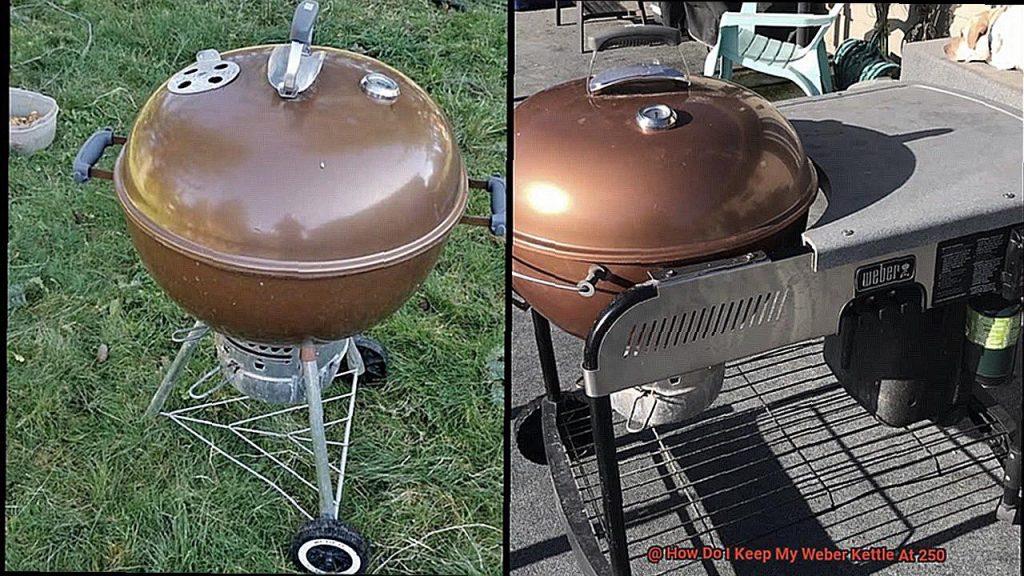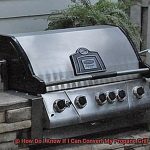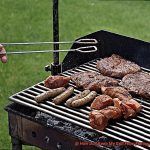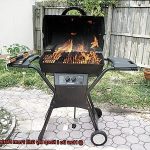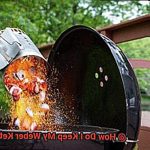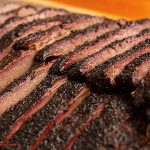Summer is finally here and it’s time to get your grill on. But, have you been thinking about making the switch from propane to natural gas? Maybe you’re tired of running out of fuel mid-cook or want to reduce your carbon footprint. Whatever the reason, converting your propane grill to natural gas can be a game-changer.
Not only will you never have to worry about running out of fuel again, but natural gas is also an eco-friendly option that produces fewer emissions than propane. However, before you make the leap, there are some crucial things you need to consider.
Converting your propane grill to natural gas isn’t as simple as swapping out the tank. You’ll need to take into account factors such as the type of grill you have, the availability of natural gas in your area, and the cost of installation. But don’t worry – we’ve got you covered.
In this blog post, we’ll explore everything you need to know about converting your propane grill to natural gas. From understanding the differences between the two fuel sources to breaking down the steps involved in conversion, we’ve got all the information you need. So grab a cold drink and let’s dive in.
Contents
Check the Manufacturer’s Manual for Your Grill
Before you dive into the process, it’s crucial to take the necessary steps to ensure that you’re doing it safely and effectively. And one of the most important steps is checking the manufacturer’s manual for your grill.
Why is this so crucial? Here are a few reasons:
- Determine if your grill is convertible: Not all grills are designed for conversion from propane to natural gas. The manufacturer’s manual will tell you whether or not your grill falls into this category. This information can save you time, money, and frustration in the long run.
- Follow instructions carefully: If your grill is convertible, the manual will provide instructions on how to do so safely and effectively. These instructions are crucial to follow carefully to avoid any safety risks during the conversion process.
- Find necessary parts: The manual will also indicate what parts you need for the conversion. This can save you time and money by ensuring that you purchase only what you need for the job.
- Contact the manufacturer or professional installer: If you have any questions or concerns about the conversion process, don’t hesitate to reach out to the manufacturer directly or consider hiring a professional installer. These experts can provide additional guidance and ensure that the conversion is done correctly.
Consider a Conversion Kit
If so, it’s time to consider converting your propane grill to natural gas. And the best part is – you don’t have to break the bank by purchasing a brand new grill. A conversion kit can make the process much more affordable and manageable.
Before jumping into purchasing a conversion kit, it’s crucial to determine if your grill is compatible with the conversion process. Not all grills can be converted, so make sure to check with your manufacturer or consult with a professional before making any purchases.
Assuming that your grill is convertible, the next step is selecting the appropriate conversion kit for your specific grill model. These kits typically come with all the necessary parts and instructions for installation. But don’t be fooled – this is not a DIY project for the inexperienced. The installation process can be complex and should only be attempted by those with experience in working with gas appliances.
While conversion kits may seem like a cost-effective solution, it’s essential to note that they can still be quite expensive. However, if you’re tired of constantly running out of propane and want the convenience of natural gas, it may be worth the investment. Here are some additional points to consider:
- Conversion kits are environmentally friendly as they use a cleaner fuel source.
- Natural gas burns hotter than propane, which can provide better searing and cooking results.
- Natural gas is also more convenient as you never have to worry about running out of fuel.
Hire a Professional for Assistance
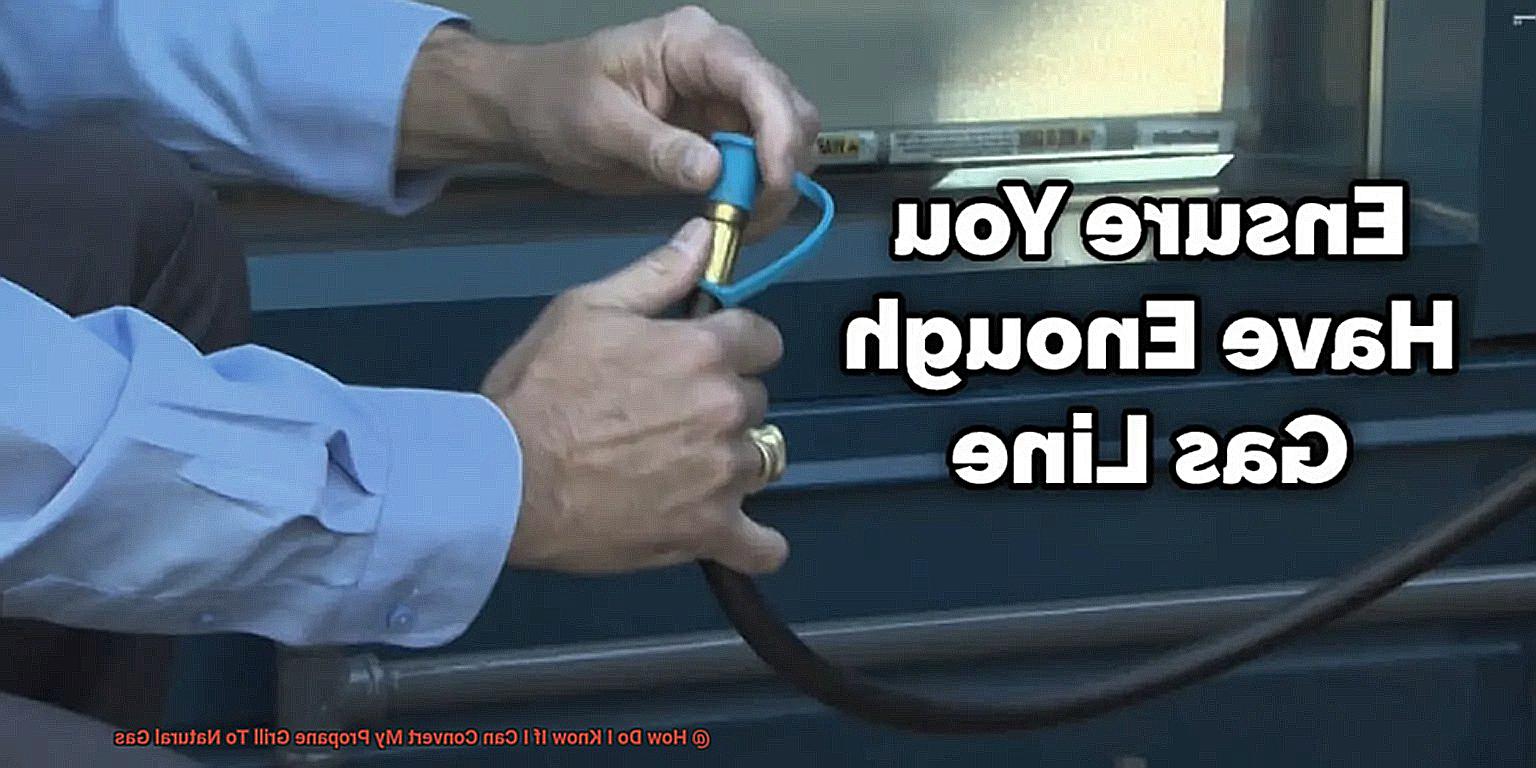
While the idea of a DIY project may seem appealing, it’s crucial to understand that the process can be dangerous if not done correctly. As an expert in this field, I highly recommend hiring a professional for assistance. Here’s why:
- Safety First: The top reason to hire a professional is safety. Converting your grill involves working with gas lines and connections, which can pose a risk if not handled correctly. A professional will have the necessary knowledge and experience to ensure that the conversion is done safely and efficiently.
- Handling Complications: Even with careful planning, complications can arise during the conversion process. A professional will have the expertise to handle any potential issues that may arise during the installation process.
- Licensed and Insured: It’s wise to choose someone who is licensed and insured when hiring a professional. This provides peace of mind knowing that you’re working with someone who is qualified and covered in case of any accidents or damages.
- Cost-Effective: While it may come with an added cost, hiring a professional can save you money in the long run by preventing costly mistakes or damages that may occur if the conversion isn’t done correctly.
- Valuable Insight: A professional can provide valuable insight and advice on maintaining and using your newly converted grill. They can offer tips on how to get the most out of your grill and keep it running smoothly for years to come.
Understand the Safety Requirements
While it may seem like a simple task, it’s crucial to prioritize safety throughout the entire process. As an expert on this topic, I’ve conducted extensive research and gathered valuable insights to share with you.
First and foremost, consult with a licensed plumber or gas technician before attempting any conversion. These professionals can assess whether your grill is suitable for natural gas and make necessary adjustments to ensure a safe conversion. Don’t put yourself or others at risk by attempting this project on your own.
Next, pay close attention to all gas connections. It’s recommended that you use a flexible gas line specifically designed for natural gas, which provides greater flexibility and reduces the chance of leaks. Before use, always check for leaks using a solution of soapy water.
It’s also important to consider the location of your natural gas grill. Since natural gas produces carbon monoxide, which can be harmful if inhaled in large amounts, it’s essential to place your grill in a well-ventilated area. Only use your grill outdoors or in a space with proper ventilation.
Lastly, always follow the manufacturer’s instructions carefully when converting your propane grill to natural gas. This will ensure that you carry out the conversion safely and correctly without causing any damage to your grill or risking injury.
Research Your Local Natural Gas Availability
Consider converting your propane grill to natural gas. However, before making any changes, it’s crucial to research your local natural gas availability.
To start, visit your local gas company’s website and check if they offer natural gas service in your area. Some companies have a tool on their website that allows you to input your address and confirm if natural gas is available. If you can’t find the information you need online, don’t hesitate to contact your local gas company directly. They can tell you if natural gas lines are near your home or if there are plans to expand their service area in the future.
It’s also important to consider any potential installation costs associated with bringing natural gas to your home. Depending on the distance from the gas line to your home, installation costs could be significant. You may want to ask your local gas company about estimated installation costs before deciding if converting your propane grill is feasible.
After researching, determine if converting your propane grill to natural gas is a feasible option for you. If natural gas is not available in your area or installation costs are too high, it may not be worth it. Always prioritize safety by consulting with a licensed professional and following manufacturer’s instructions carefully.
Consider the Cost of Conversion
Before you get too fired up, it’s important to factor in the cost of conversion. As an expert on this topic, I’ve done some research and gathered some key points to help you make an informed decision.
First and foremost, check if your grill is eligible for conversion. Many manufacturers offer conversion kits for their propane grills, but not all do. If a kit is available, it can range in price from $50 to $150 depending on the brand and type of grill. However, keep in mind that some kits may require professional installation, which will add to the overall cost.
But that’s not all – you’ll also need to consider the cost of running a natural gas line to your grill. This will require the services of a professional plumber or gas fitter which can be an additional cost.
While we’re on the topic of cost, it’s important to note that natural gas typically costs less than propane. So over time, you may see savings on fuel costs. However, it may take several years to recoup the initial cost of conversion.
To make things easier for you, here’s a quick checklist of things to consider before making any changes:
- Check if your grill is eligible for conversion
- Factor in the cost of a conversion kit (and potentially professional installation)
- Consider the cost of running a natural gas line
- Weigh the potential long-term savings on fuel costs
Prepare Your Grill for Conversion
Converting your propane grill to natural gas can be a game-changer, but it’s essential to prepare your grill properly before making the switch. As an expert in this field, I’m here to guide you through the necessary steps for a successful conversion.
First and foremost, read your owner’s manual carefully. Each manufacturer has specific instructions for converting their grills, and following them closely is crucial for a safe and successful conversion. Don’t skip this step – it can make all the difference in ensuring that your grill operates safely and efficiently.
Next, give your grill a deep clean. You want to remove any debris or residue from the burners, grates, and other components. A dirty grill can cause problems during the conversion process, such as clogged burners or poor ignition. Take the time to thoroughly clean your grill before moving on to the next step.
After cleaning your grill, inspect it for any damage or wear and tear. Look for cracks in the burners, rusted parts, or loose connections. These issues can affect the safety and performance of your grill and must be addressed before converting it to natural gas. Don’t ignore any potential safety hazards – it’s better to address them now than to risk a dangerous situation later.
Once you’ve ensured that your grill is in good condition, it’s time to gather the necessary tools and equipment for the conversion. You’ll need a natural gas hose, a regulator, and a conversion kit specific to your grill model. Make sure you have everything you need before starting the conversion process.
It’s important to note that not all propane grills are compatible with natural gas conversion. Some manufacturers do not provide conversion kits for certain models, while others explicitly state that their grills are not convertible. Before investing time and money into converting your propane grill, check with the manufacturer or consult a professional to determine whether it’s possible and safe to do so.
Follow the Instructions Carefully
Converting your propane grill to natural gas may be the solution you need, providing a more convenient and cost-effective grilling experience. But, before you dive into the conversion process, it’s crucial to remember one critical thing – follow the instructions carefully.
Why is this so important? Well, for starters, it ensures that you are doing everything safely and correctly. Let’s explore some sub-topics and lists to explain why reading and following instructions carefully is essential when converting your propane grill to natural gas.
Safety Matters:
Safety should always be your top priority when working with gas lines and connections. By following the instructions carefully, you can minimize the risk of leaks, which can be hazardous to yourself and others. Properly connecting your grill to natural gas requires specific steps that must be followed precisely.
Avoiding Costly Mistakes:
Making errors during the conversion process can end up costing you time, money, or even your entire grill. By reading and understanding the instructions, you can avoid making common mistakes and ensure that everything is done right the first time around. The instructions will guide you through each step of the conversion process, making it easier to avoid costly errors.
Getting the Most Out of Your Grill:
A successful conversion means that your grill will run more efficiently and provide consistent heat. Following the instructions carefully will ensure that all components are correctly installed, allowing your grill to work at its best and provide delicious meals every time.
To convert your propane grill to natural gas successfully, gather all necessary tools and materials beforehand, turn off the propane tank, and read the manual or guide thoroughly. Be sure to remove any propane regulator or orifices before installing the new natural gas regulator and connecting the natural gas hose. Double-check all connections and fittings for leaks using a soapy water solution or leak detection spray.
ZZ6ONK5rSTs” >
Conclusion
In conclusion, upgrading your propane grill to natural gas can revolutionize your grilling game. Say goodbye to the stress of running out of fuel mid-cookout and hello to a more eco-friendly option that produces fewer emissions than propane. But before you make the switch, there are some crucial factors to consider.
Firstly, consult your grill’s manufacturer’s manual to determine if it’s convertible and follow instructions precisely. Secondly, invest in a conversion kit and enlist professional assistance during installation for optimal safety measures.
Additionally, research local natural gas availability and factor in the cost of conversion before making any changes. Finally, prepare your grill by giving it a thorough cleaning and inspecting for any damage or wear and tear before following instructions carefully during conversion.
By adhering to these steps and taking necessary precautions, you can successfully convert your propane grill to natural gas while enjoying a more convenient and cost-effective grilling experience that reduces your carbon footprint.

